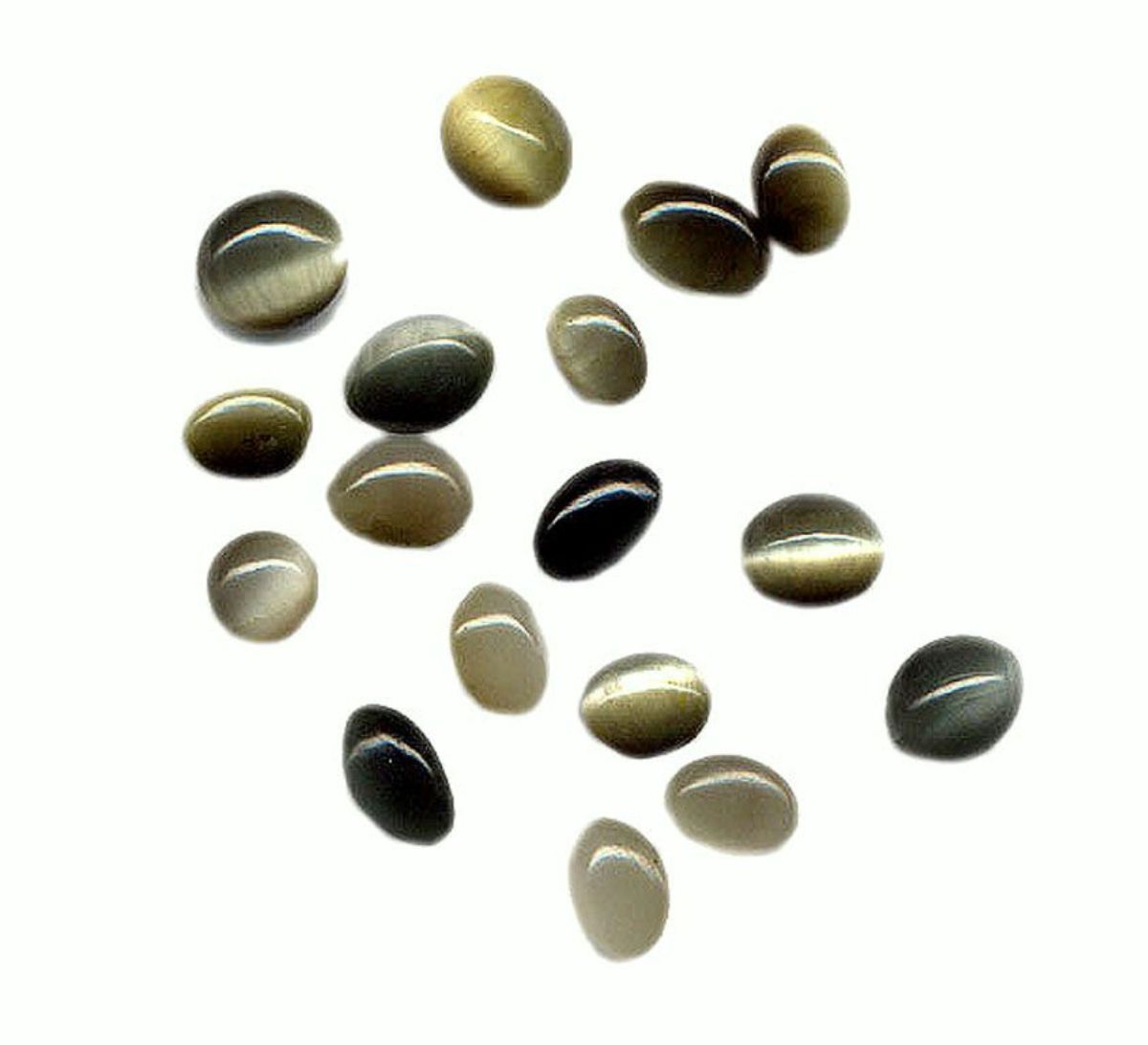Cat's eye
Description
A semiprecious gemstone composed of quartz that contains a band of parallel fibers. When cut and polished as a cabochon, the band produces an opalescent light reflection that appears to move across the convex polished surface of the stone as it is rotated. This effect is called chatoyancy. Cat's eyes are usually a pale yellow or greenish color. A dark golden yellow cat's eye from South Africa is known as a tiger's eye or African cat's eye. It is a quartz stone with oriented fibers of crocicolite. True cat's eye is a variety of quartz, but other stones can also show this effect, such as chrysoberyl (oriental cat's eye), chalcedony, tourmaline, scapolite, cordierite, orthoclase, albite, willimanite and beryl. Corundum has an imperfect chatoyancy which produces a star effect rather than a line.
Synonyms and Related Terms
cat's-eye; tiger's eye; tiger eye; tigereye; quartz; cymophane; Tigerauge (Deut.); œil de tigre (Fr.); olho de tigre (Port.); tijgeroog (Ned.)
Physical and Chemical Properties
- Trigonal crystal system.
- Low birefringence.
- Low thermal expansion.
- Fracture = conchoidal.
- Luster = vitreous to greasy.
- Streak = white.
- Mohs Hardness = 7.0
- Density = 2.65 g/ml
Comparisons
Resources and Citations
- Mineralogy Database: Quartz
- Encyclopedia Britannica, http://www.britannica.com Comment: "cat's-eye" [Accessed September 19, 2003].
- C.W.Chesterman, K.E.Lowe, Audubon Society Field Guide to North American Rocks and Minerals, Alfred A. Knopf, New York, 1979
- Wikipedia: http://en.wikipedia.org/wiki/Tiger%27s_eye (Accessed Sept. 14, 2005)
- Van Nostrand's Scientific Encyclopedia, Douglas M. Considine (ed.), Van Nostrand Reinhold, New York, 1976
- Random House, Webster's Encyclopedic Unabridged Dictionary of the English Language, Grammercy Book, New York, 1997
- The American Heritage Dictionary or Encarta, via Microsoft Bookshelf 98, Microsoft Corp., 1998
- Thomas Gregory, The Condensed Chemical Dictionary, Reinhold Publishing, New York, 3rd ed., 1942


